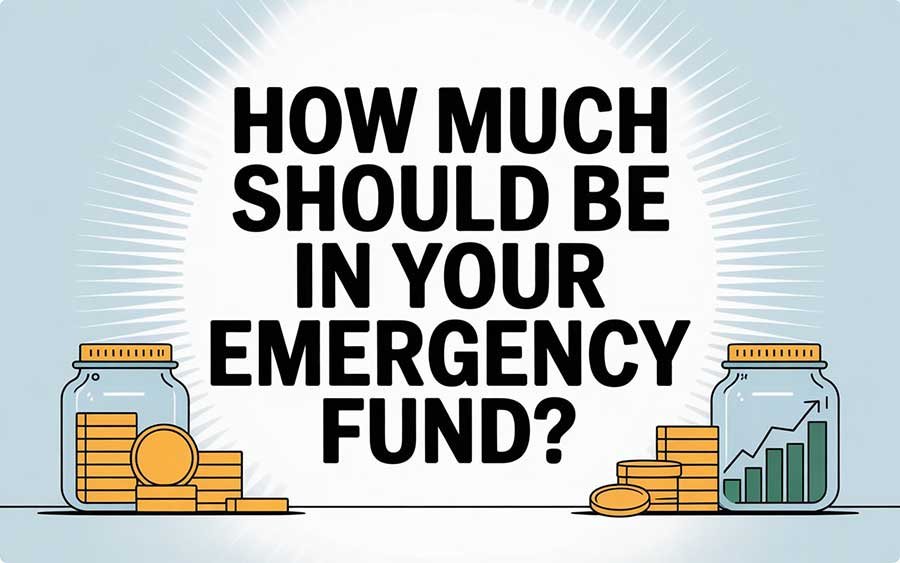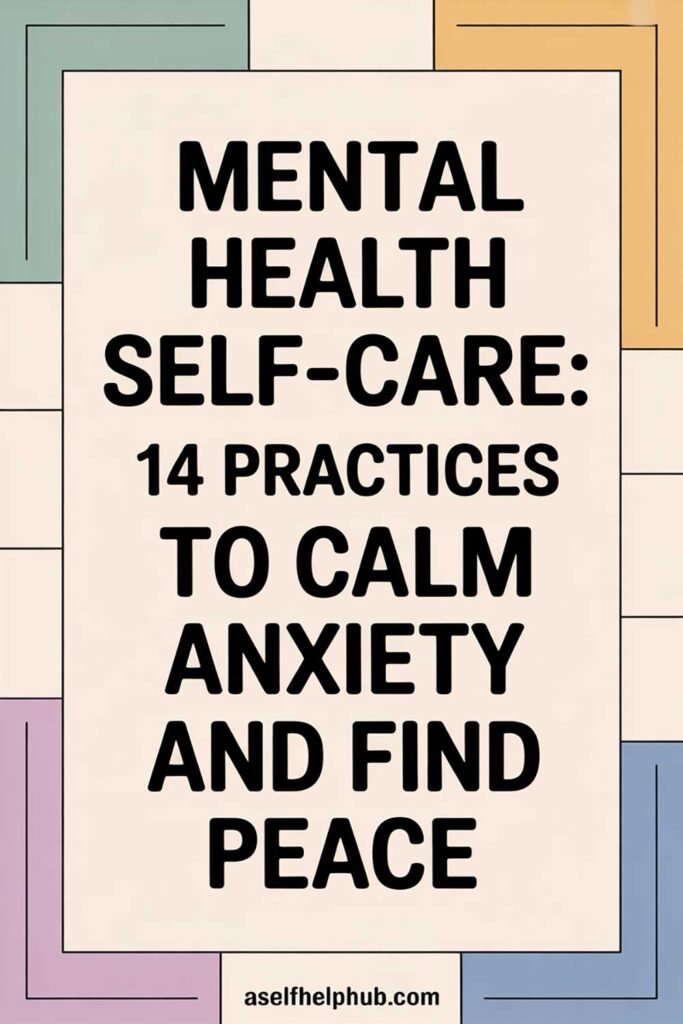
How Much Should Be in Your Emergency Fund?
An emergency fund isn’t just a financial buffer—it’s peace of mind. It’s the difference between stress and stability when life throws a curveball. Whether it’s a surprise medical bill, job loss, or urgent car repair, having money set aside for the unexpected is one of the smartest financial moves you can make.
But how much should actually be in your emergency fund?

In this article, we’re going to break it down step-by-step. We’ll cover how to calculate your ideal emergency savings, how to build it from scratch, common mistakes to avoid, and inspiring real-life stories of people who used emergency funds to stay afloat. Whether you’re just getting started or need to revisit your savings plan, you’ll find practical advice that meets you where you are.
What Is an Emergency Fund?
An emergency fund is a dedicated pool of money set aside specifically to cover unexpected expenses. These include things like:
- Sudden medical emergencies
- Job loss
- Car repairs
- Home maintenance issues
- Unplanned travel (e.g., family emergencies)
- Replacing broken appliances
What it’s NOT meant for:
- Vacations
- Shopping splurges
- Down payments
- Planned expenses (like weddings or birthdays)
The purpose is clear: cover the essentials when life gets chaotic.
Why You Absolutely Need One
No matter how secure your job feels or how well you’re budgeting, life happens. According to a Federal Reserve report, 32% of Americans said they couldn’t cover a $400 emergency with cash or savings. Without a cushion, even a small setback can snowball into serious debt.
Having an emergency fund means:
- You won’t have to rely on credit cards or loans
- You can navigate crises calmly
- You protect your long-term financial goals
Real-Life Example:
Maria, a single mom, had saved $2,000 over 18 months. When her son broke his arm and needed minor surgery, her emergency fund covered the deductible and hospital bills. Without it, she would have added to the credit card debt she’d finally paid off.
So, How Much Should Be in It?
The most common rule of thumb is 3 to 6 months’ worth of essential living expenses.
But here’s what really matters: your personal situation.
Consider:
- Your job stability: Freelancers and gig workers may want 6–12 months.
- Household size: More people = higher cost of emergencies.
- Health factors: If you or a family member have health issues, pad your fund.
- Debt level: The more debt you carry, the more you may want in cash.
Calculate It Step-by-Step:
- List your monthly essentials (rent, utilities, groceries, transportation, insurance, minimum debt payments).
- Add them up: Let’s say it totals $2,500/month.
- Multiply that by 3 to 6: That’s $7,500 to $15,000 as your goal range.
Remember, this isn’t all or nothing. Start small and grow.
How to Start One from Scratch
Step 1: Open a Separate Savings Account
Out of sight, out of mind. Keep it separate from your spending money.
Step 2: Set a Micro-Goal
Start with $500, then $1,000. Hitting small milestones builds momentum.
Step 3: Automate It
Set up automatic transfers—even $10/week adds up.
Step 4: Cut and Redirect
Cancel unused subscriptions, cook at home more often, pause non-urgent purchases. Put every dollar you save into your fund.
Step 5: Use Windfalls Wisely
Tax return? Birthday cash? Bonus? Add it to your emergency savings.
Mistakes to Avoid
- Not starting because it feels overwhelming: Start small. Progress beats perfection.
- Using your fund for non-emergencies: That “great sale” isn’t an emergency.
- Keeping it too accessible: Use a high-yield savings account so it’s not too easy to touch.
- Letting it sit for years without adjusting: Reevaluate every 6–12 months based on your expenses.
When to Use Your Emergency Fund
Use it only when the expense is:
- Urgent
- Necessary
- Unexpected
Ask yourself:
- Will this affect my ability to work or live safely?
- Can it be postponed?
- Can I cover this in my regular budget?
If not—tap into your fund confidently, guilt-free. That’s what it’s there for.
Real-Life Example:
James, a rideshare driver, lost income during a 2-week car repair. Thanks to his emergency savings, he was able to pay rent, keep up on bills, and cover repairs without missing a beat. It kept him from spiraling into payday loan territory.
When Your Fund Is Fully Funded
Congrats! Once you hit your emergency fund goal:
- Leave it alone (unless needed)
- Reallocate savings toward debt, investing, or long-term goals
- Continue contributing small amounts to adjust for inflation or life changes
20 Quotes About Emergency Funds and Financial Preparedness
“Do not save what is left after spending, but spend what is left after saving.” – Warren Buffett
“A budget tells your money where to go instead of wondering where it went.” – Dave Ramsey
“Planning is bringing the future into the present.” – Alan Lakein
“An emergency fund is your financial seatbelt.” – Unknown
“It’s not about how much you make. It’s about how much you keep.” – T. Harv Eker
“The future belongs to those who prepare for it today.” – Malcolm X
“Financial freedom is available to those who learn about it and work for it.” – Robert Kiyosaki
“Saving must become a priority, not a thought after spending.” – Suze Orman
“Money looks better in the bank than on your feet.” – Sophia Amoruso
“Emergency funds turn stress into strategy.” – Unknown
“Preparation today means survival tomorrow.” – Unknown
“Build your emergency fund when you don’t need it so it’s there when you do.” – Unknown
“Money saved is money earned.” – Benjamin Franklin
“You can’t predict the unexpected, but you can prepare for it.” – Unknown
“Financial resilience begins with a cushion.” – Unknown
“Don’t wait for a storm to build your roof.” – Unknown
“A rainy day fund won’t stop the storm, but it will keep you dry.” – Unknown
“Your future self will thank you for the money you didn’t spend today.” – Unknown
“Financial peace isn’t a number—it’s a mindset.” – Unknown
“Emergency funds are like insurance for your wallet.” – Unknown
🧠 Picture This
Imagine this: Your car breaks down on a Monday morning. The mechanic gives you a repair estimate that would have previously sent your stomach into knots. But instead of panicking, you smile—because your emergency fund has you covered. You pay the bill, get your car fixed, and move on with your life.
That’s the kind of power and calm your emergency fund gives you. It’s more than money. It’s freedom.
What would life look like if you were financially ready for anything?
📣 Please Share This Article
If you found this helpful, share it with a friend or family member who’s building their financial foundation. A single post can spark someone’s financial security.
⚠️ Disclaimer
This article is based on financial best practices and personal experiences. It is intended for informational purposes only and should not be considered professional financial advice. Always consult a certified financial advisor for your specific situation.






